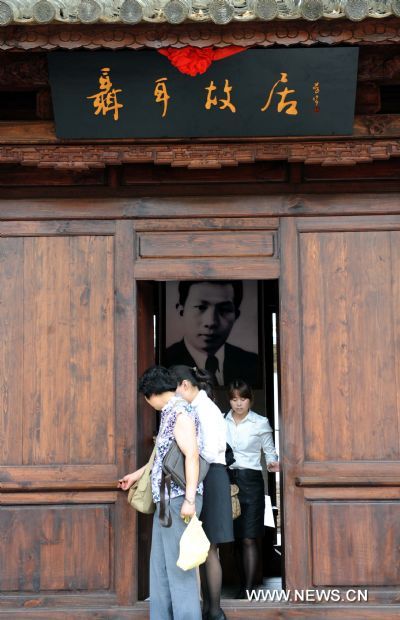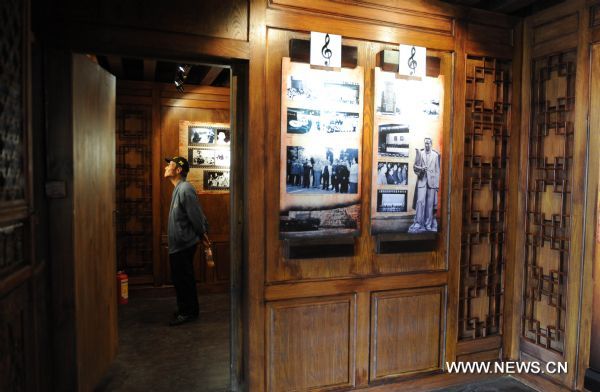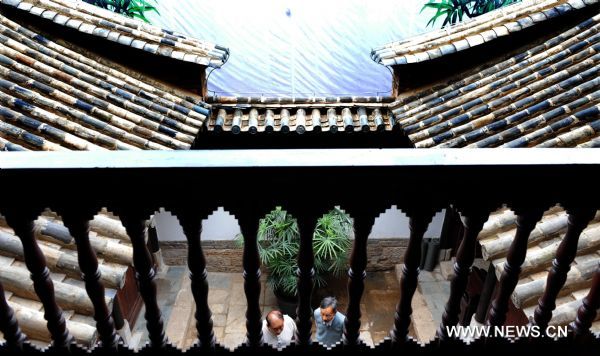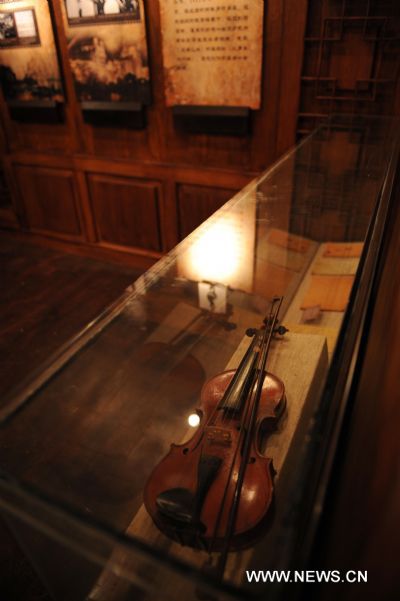
Citizens visit an old-fashioned house used to be the residence of Nie Er (1912-1935), composer of the March of the Volunteers, or China's national anthem, in Kunming, capital of southwest China's Yunnan Province, June 21, 2011. The old residence was officially opened to the public for free on Tuesday, on the occasion of the second Nie Er Music Week. Nie is known as the country's pioneer for the proletarian revolutionary music and the New Music Movement.
(Xinhua/Qin Qing)

A citizen visits an old-fashioned house used to be the residence of Nie Er (1912-1935), composer of the March of the Volunteers, or China's national anthem, in Kunming, capital of southwest China's Yunnan Province, June 21, 2011. The old residence was officially opened to the public for free on Tuesday, on the occasion of the second Nie Er Music Week. Nie is known as the country's pioneer for the proletarian revolutionary music and the New Music Movement.
(Xinhua/Qin Qing)

Citizens visit an old-fashioned house used to be the residence of Nie Er (1912-1935), composer of the March of the Volunteers, or China's national anthem, in Kunming, capital of southwest China's Yunnan Province, June 21, 2011. The old residence was officially opened to the public for free on Tuesday, on the occasion of the second Nie Er Music Week. Nie is known as the country's pioneer for the proletarian revolutionary music and the New Music Movement.
(Xinhua/Qin Qing)

A violin is exhibited in an old-fashioned house used to be the residence of Nie Er (1912-1935), composer of the March of the Volunteers, or China's national anthem, in Kunming, capital of southwest China's Yunnan Province, June 21, 2011. The old residence was officially opened to the public for free on Tuesday, on the occasion of the second Nie Er Music Week. Nie is known as the country's pioneer for the proletarian revolutionary music and the New Music Movement.
(Xinhua/Qin Qing)
